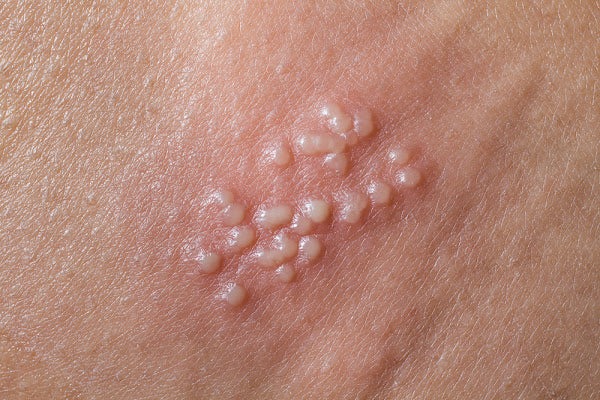Mild, recurring irritation or sensitivity in the lower body can sometimes signal a common viral condition caused by the herpes simplex virus (HSV). Many people overlook these sensations or assume they stem from allergies or stress, yet awareness and timely consultation with a healthcare provider are key to effective care.
HSV infections are among the most widespread viral conditions globally. While they may occasionally cause discomfort, most people experience long, healthy lives with proper knowledge and management. This guide explains what HSV is, how it is transmitted, and the best ways to protect your health and peace of mind — all based on trusted medical research, written in neutral, educational language.
What Is HSV?
The herpes simplex virus exists in two main types. HSV-1 typically affects the mouth or surrounding area but can also appear elsewhere. HSV-2 more often involves the lower body. Once a person contracts the virus, it can remain inactive for long periods and occasionally reactivate. Modern treatment greatly reduces its impact.

Genital herpes is an infection caused by the herpes simplex virus (HSV). There are two main types: HSV-1, which usually causes oral infections but can also infect the genital area, and HSV-2, which primarily affects the genital region. Once the virus enters the body, it remains for life, sometimes staying dormant and reactivating later. The first outbreak is often the most intense, while subsequent recurrences are typically milder and shorter in duration. (Mayo Clinic)
How Common Is It?
According to the Centers for Disease Control and Prevention (CDC), roughly 1 in 6 adults in the United States carries HSV-2, while the World Health Organization (WHO) estimates that more than 400 million people worldwide live with the condition. Because symptoms may be absent or very mild, many people are unaware they have it — which is why public education and open conversation matter.
How It Spreads

HSV passes primarily through close skin contact with someone who already carries the virus. Transmission can occur even when there are no visible signs. It is not spread through shared objects such as towels or seats, since the virus does not survive long outside the body.
Risk factors include:
-
Close physical contact without protection
-
Having a partner who already has HSV
-
Reduced immune defense due to illness or medication
Understanding these factors helps individuals take simple, effective precautions.
Possible Indicators
Some people notice short-lived irritation, mild sensitivity, or tingling sensations in the affected area, particularly during the first episode. Later recurrences, if any, tend to be less noticeable and shorter. Triggers can include stress, fatigue, or hormonal changes. Because the signs resemble other common skin conditions, medical evaluation is the only reliable way to confirm HSV.
When to Seek Medical Advice

Consult a healthcare professional if you experience unusual or recurrent irritation in the lower body, or if a partner has been diagnosed with HSV. Early consultation allows for accurate testing and appropriate care. Routine screening is not generally required unless symptoms appear or exposure is known.
Diagnosis and Testing
Doctors may visually assess the area, take a gentle swab for laboratory testing, or perform a blood test that detects antibodies. Only qualified medical professionals can make a diagnosis; self-assessment is not recommended.
Treatment and Care Options
There is no permanent cure, but modern treatments effectively manage the condition.
Antiviral therapy — using medications such as acyclovir, valacyclovir, or famciclovir — can shorten active phases, reduce discomfort, and lower transmission risk. A physician determines the appropriate dosage and duration.
Practical self-care includes:
-
Keeping the area clean and dry
-
Wearing breathable clothing
-
Avoiding friction or irritation
-
Managing stress and maintaining good rest
Special Considerations During Pregnancy
If you are pregnant and have a known history of HSV, inform your healthcare provider early. Doctors may recommend preventive antiviral therapy in late pregnancy to support maternal and newborn health. Medical teams are well equipped to handle such cases safely.
Emotional Health and Relationships
Receiving an HSV diagnosis can feel stressful, but emotional reactions such as worry or embarrassment usually fade with understanding. Millions of people maintain healthy relationships while managing HSV. Open communication with partners, responsible health practices, and medical guidance make this entirely manageable.
Mutual respect and honesty build trust. Avoid close physical contact during active symptoms, and discuss preventive options — including consistent protection and, if advised, daily antiviral therapy.
Prevention and Everyday Wellness
Evidence-based steps to lower risk include:
-
Using protective barriers during close contact
-
Avoiding intimate contact when symptoms are present
-
Taking prescribed medication if outbreaks are frequent
-
Strengthening immunity through good nutrition, sleep, and stress control
Being informed empowers individuals to care for themselves and others responsibly.
Long-Term Outlook
Over time, HSV activity typically becomes milder and less frequent. Many people go months or years without recurrence. With today’s antiviral options and lifestyle management, HSV is considered a manageable health condition, not a major limitation.
